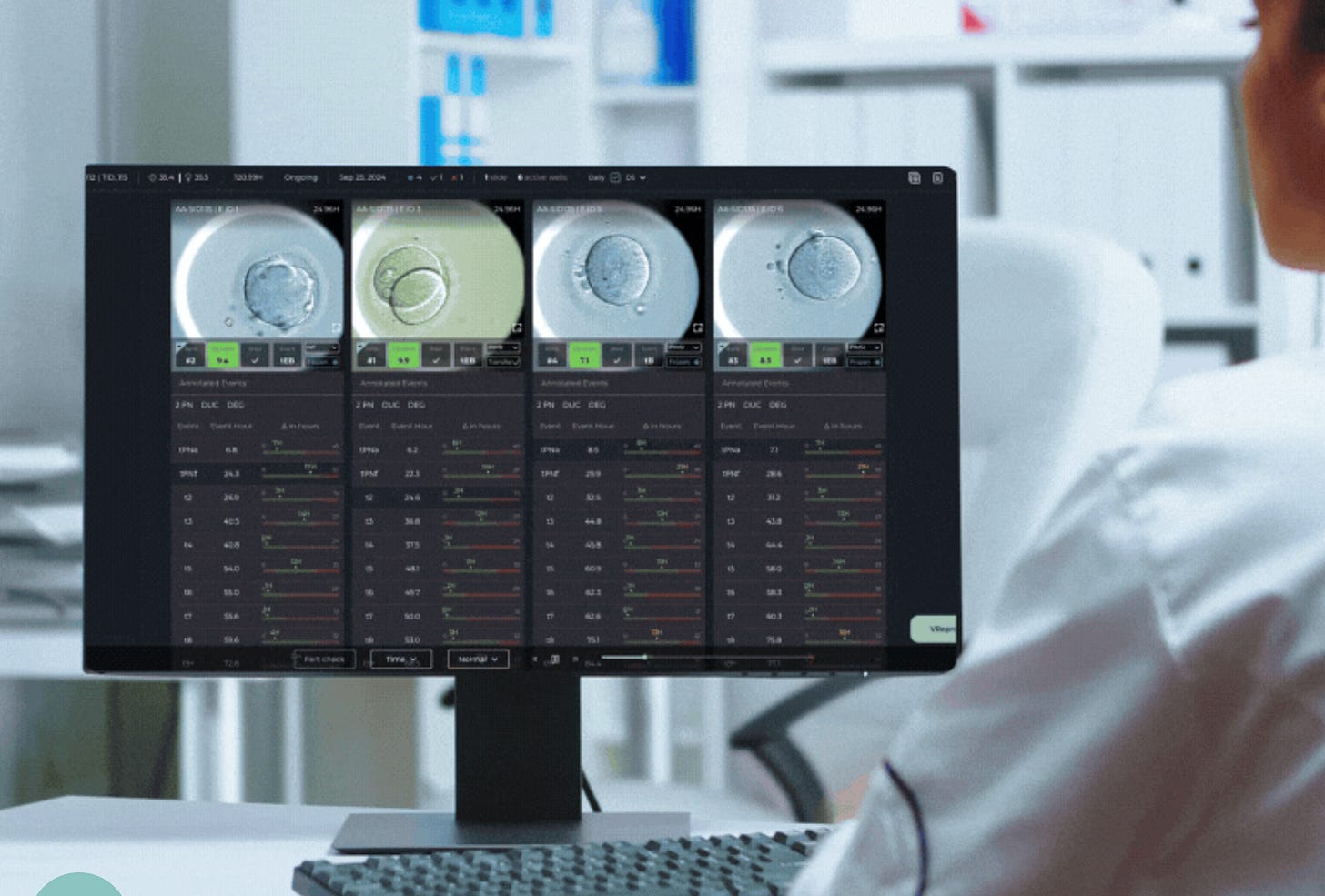Fairtility secures FDA clearance for AI-powered embryo assessment tool
Fairtility's CHLOE platform is already in commercial use worldwide
Fairtility has become the first company to win FDA clearance for an AI-powered embryo assessment tool, allowing for a US rollout following previous international success.
The Israeli company’s CHLOE Blast software, part of its wider CHLOE platform, now holds a 510(k) clearance from the US regulator - a key milestone that could accelerate adoption of the technology across IVF clinics in the United States.
The clearance, announced today (September 3) gives official recognition to Fairtility’s use of machine learning to analyse time-lapse embryo images and then to deliver more objective assessments of those embryos. Until now, embryo selection has relied heavily on the subjective judgement of embryologists, with the potential for significant variability between those experts and between clinics. By offering a more consistent, data-driven approach, CHLOE promises to make a notoriously complex process more transparent and potentially more effective.
“With this first FDA clearance, CHLOE is setting a regulatory precedent in this space,” said Eran Eshed, CEO and co-founder of Fairtility.
“We are moving the industry from subjective and manual assessment to an objective, data-driven and automated one. This clearance allows us to offer clinics and patients in the U.S. the same AI-powered technology that has been successfully implemented in many countries across Europe, Canada and Asia Pacific.”
Global tool entering US market
Fairtility’s CHLOE platform is already in commercial use worldwide, supporting tens of thousands of patients. It welcomed EU approval in 2022, following a $15m Series A raise in the same year. The system is designed not just for embryologists, but also to improve communication between clinicians and patients and to to provide management with richer, data-driven insights.
“This FDA clearance marks a turning point where years of AI research translate into real progress for patients,” said Jason Barritt, a U.S.-based assisted reproductive lab director.
“With CHLOE, IVF decision-making becomes more consistent, transparent, and empowering for both clinicians and patients, setting the stage for the future of individualized reproductive care and improved outcomes.”
Rising infertility rates highlight an urgent need
The stakes are high. According to the CDC, infertility among married women in the U.S. rose from 6.7% in 2011–2015 to 8.7% in 2015–2019, with nearly one in ten married women of reproductive age now facing infertility challenges. Greater consistency in embryo selection could improve success rates, reduce the emotional and financial burden of failed cycles, and help clinics better manage resources.
Clinicians point to CHLOE’s integration into existing workflows as one of its biggest strengths.
“This technology represents a meaningful advancement in the practice of fertility care,” said Dr. Said Daneshmand, reproductive endocrinologist at San Diego Fertility Center.
“Through continuous monitoring of embryo development with time-lapse imaging, coupled with explainable artificial intelligence, it provides physicians with real-time, interpretable insights without adding unnecessary complexity to the workflow. By integrating seamlessly with the embryology laboratory, it strengthens confidence in critical decision-making and fosters closer collaboration between clinicians and embryologists.”
Investor view - ‘a new era’
For investors, the FDA’s approval is not just regulatory validation but also a commercial inflection point.
“This FDA clearance is more than a regulatory milestone,” said Moti Shniberg, founder of Nacre Capital, one of Fairtility’s backers.
“It reflects Fairtility’s leadership in bringing AI into reproductive medicine and marks the beginning of a new era of standardization, transparency, and improved outcomes for patients and clinics alike.”
For the women’s health and femtech sector, the clearance is another milestone which highlights the growing role of AI in solving entrenched problems in reproductive care.
IVF can often be criticised for the lack of transparency, very variable outcomes and high costs. But now tools like CHLOE provide an opportunity to move from subjectivity to data and potentially improve accessibility too.



